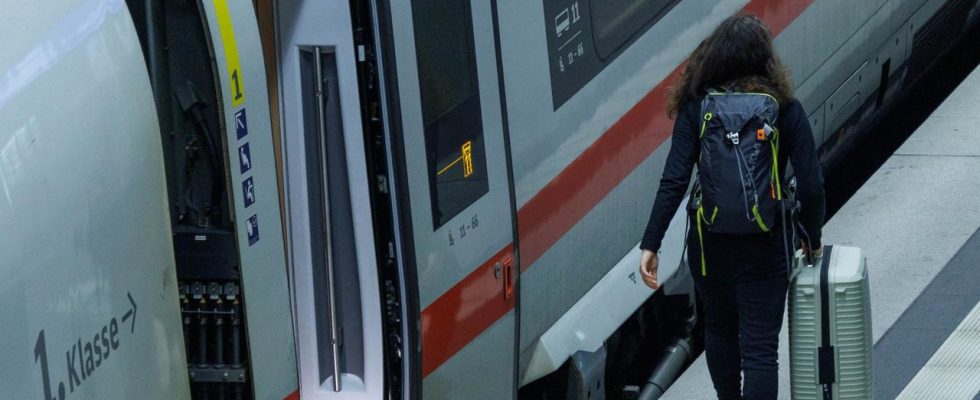breaking news
The GDL wants to strike again in the collective bargaining dispute with Deutsche Bahn. Passenger traffic will be on strike for 35 hours from Thursday at 2 a.m., freight traffic will be on strike from Wednesday evening. After that there will be “wave strikes”.
The German Train Drivers’ Union (GDL) has announced further strikes at Deutsche Bahn. The first strike will begin on Wednesday evening at 6 p.m. in freight traffic and on Thursday at 2 a.m. in passenger traffic, said GDL boss Claus Weselsky.
This first walkout is scheduled to last 35 hours. “35 hours so that everyone in the Republic realizes what we’re all about: namely the 35-hour week,” said Weselsky. “It is the GDL that has already made extensive concessions in this collective bargaining round and it is the railway board that is not moving an inch and is driving the GDL members into further strikes.”
The GDL boss explained that “wave strikes” would then follow. The union will no longer provide 48 hours’ notice of these work stoppages. “This means that the railway is no longer a reliable means of transport,” said Weselsky.
Heaviness restrictions expected in rail traffic
The GDL and the railway actually wanted to negotiate until Sunday. However, according to the company, the union broke off the talks prematurely. In a press release, the GDL accuses the railway of not conducting the negotiations in a solution-oriented manner. The talks were ended because the railway “lacked the good will to make the negotiations a success with good compromises”.
In its communication, the GDL expressly points out that no emergency timetable can be guaranteed for the following strike measures. Passengers therefore have to prepare for massive failures and restrictions in rail operations.
“The railway board is responsible for this new escalation level and not the GDL or its members,” said Weselsky. “The railway board doesn’t care about the legitimate interests of the railway workers and therefore went on strike themselves, so that no solution could be reached.”
Weekly working hours still a difficult point
It is the fifth industrial dispute in the collective bargaining dispute that has been going on for months. A sticking point in the negotiations so far is the union’s demand for a reduction in weekly working hours from 38 to 35 hours from 2028 with full wage compensation. The railway initially rejected this outright, but later offered an option model. This would allow train drivers to work down to 37 hours per week, but in return they would have to forego an additional salary increase offered. Overall, the company offers up to 13 percent more wages.

